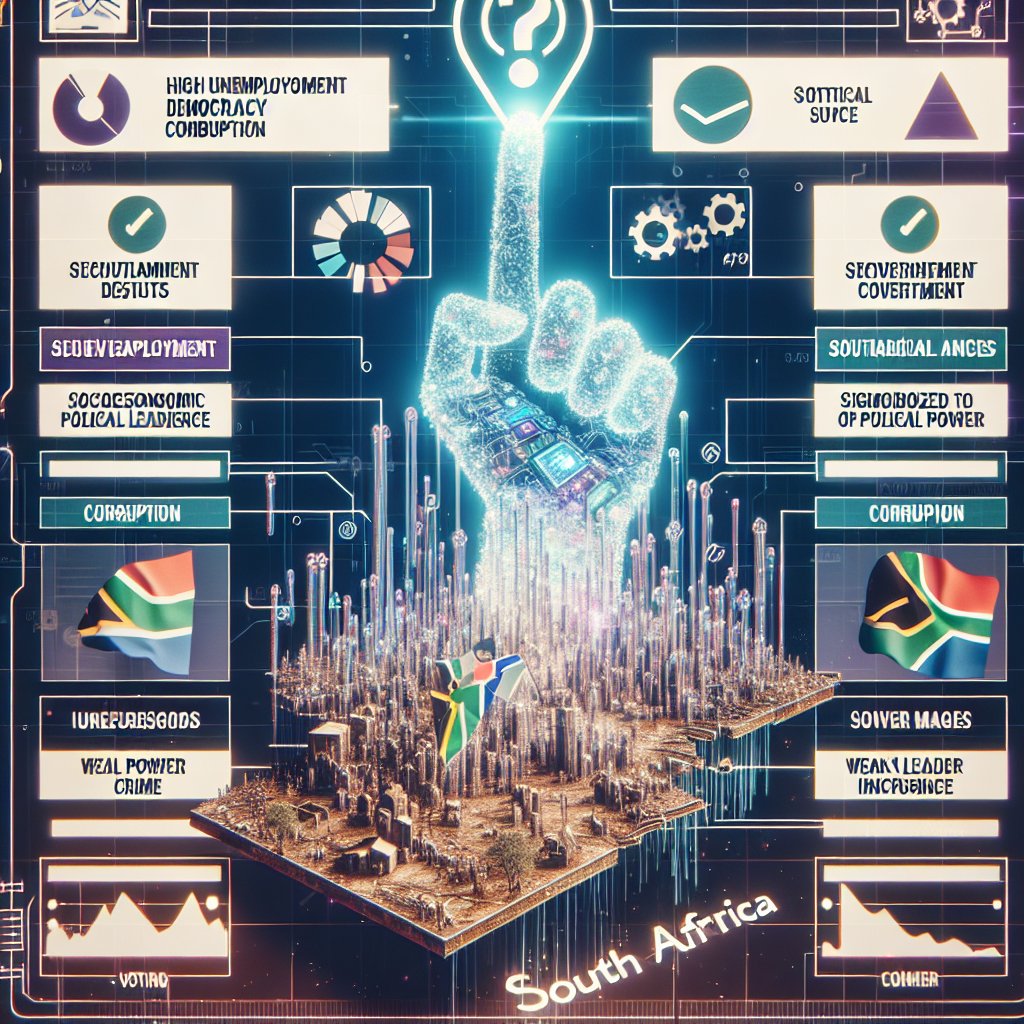Image created by AI
South Africa Braces for Possible Coalition Government as ANC's Grip Falters
As South Africa gears up for its national elections on May 29, a recent survey indicates that the ruling African National Congress (ANC), a dominant force since the end of apartheid, may fall short of a majority in Parliament for the first time. According to a study by SABI Strategy and presented by the Brenthurst Foundation, the ANC's support dipped to 39%, implicating a potential move toward a coalition government.
The survey, involving 1,506 registered voters, reflects the public's frustration with a range of socio-economic challenges. Over half of the respondents cited the ANC's governance over the last three decades as the predominant cause for the country's current issues. High unemployment rates, pervasive corruption, ongoing power outages (load shedding), weak leadership, and crime were identified as key voter concerns.
As the ANC's support wanes, opposition parties, namely the Democratic Alliance (DA) led by John Steenhuisen and the fledgling MK Party backed by Jacob Zuma, appear to be amassing a significant share of the vote. The DA has increased its expected vote to 27%, while the MK Party has surpassed the Economic Freedom Fighters (EFF) with 13% of voter support, based on the recent poll.
Although the DA and ANC are both viewed as parties capable of effective governance by an equal proportion of voters (33%), the survey results remain contentious, particularly among EFF supporters. Critics highlight the funding ties between the opposition parties and the Oppenheimer family, major donors to the DA and others, casting doubt on the survey's impartiality.
Regardless of the validity of these criticisms, the prospect of the ANC losing its majority is no longer speculative; the party's decrease below 50% of votes during the local elections in 2021 echoed this sentiment. If such trends persist, South Africa might witness its first coalition at a national level, which would significantly impact President Ramaphosa's chances of serving a second term.
The general election process in South Africa allows citizens to vote for political parties, and seats in the 400-seat Parliament are allocated accordingly. The president is then elected by the members of Parliament. Voters will also determine the makeup of the provincial legislatures across the country's nine provinces.
As the political battleground heats up and with over 27.7 million citizens registered to vote, South Africa stands at the precipice of a potentially transformative election. A future coalition government might be able to address the electorate's grievances, or it could signal a new era of political instability.










